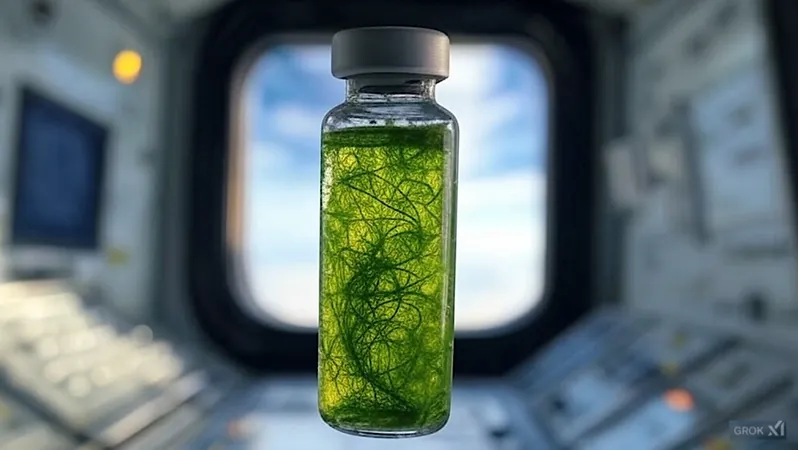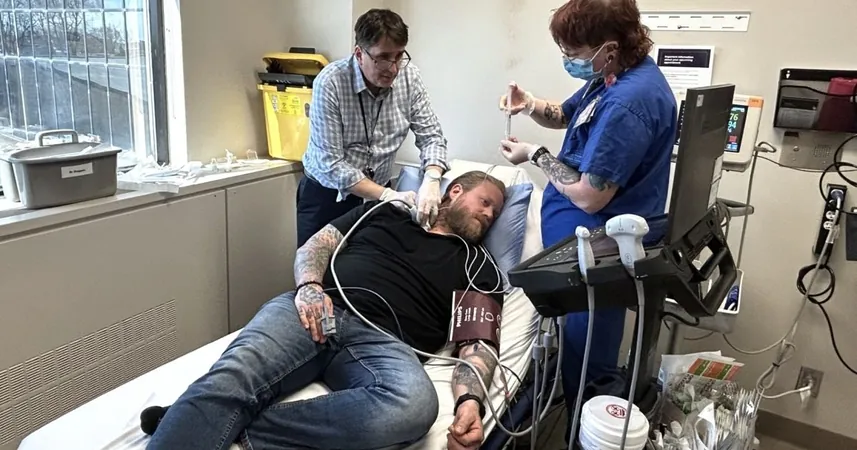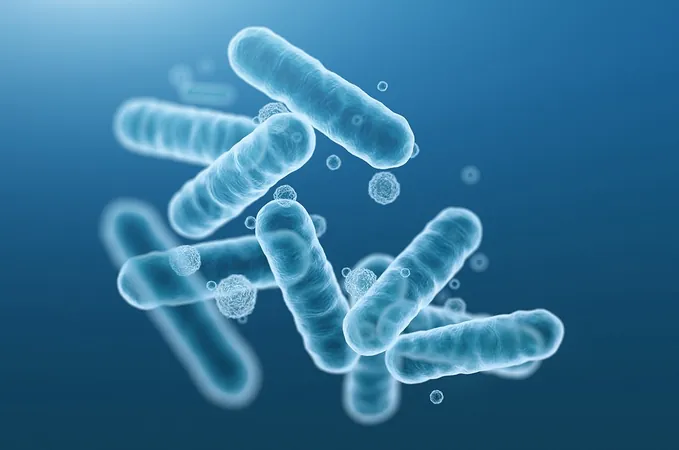
NASA’s Groundbreaking Space Research Results Network – April 2025 Release
2025-04-07
Author: Jacques
In an exciting update from NASA, researchers have recently published several significant studies focused on the effects of space travel on human health and biological systems. These studies not only enhance our understanding of astronauts' health but also pave the way for future exploration and habitation of other celestial bodies.
Impact of Spaceflight on Gene Expression
One notable study by Huang et al., published in PLoS One, examines the impact of spaceflight on gene expression in cultured human mesenchymal stem/stromal cells. Identified by its high relevance to the International Space Station (ISS) results, this research could inform medical and biological processes during long-duration space missions.
Space Travel-Associated Motion Sickness
In a comprehensive review, Buckey Jr. and colleagues discuss space travel-associated motion sickness and its treatment options in the British Journal of Clinical Pharmacology. This study highlights existing therapeutics and acknowledges the unique challenges of administering treatments in microgravity. With NASA's funding focusing on nebulized intranasal administration of scopolamine hydrobromide, the findings aim to minimize adverse side effects, which are critical for effective astronaut health management.
Cerebrovascular Emergencies in Spaceflight
Another important paper by Rosenberg et al. in Neurology Clinical Practice discusses preventative measures against cerebrovascular emergencies in spaceflight. Their review proposes enhanced medical screening guidelines, essential for preparing astronauts for potential health crises during missions.
Biotechnological Advancements with LEIA Mission
Excitingly, the exploration of biotechnological advancements continues with the LEIA mission, which marks NASA's first biological investigation on the lunar surface since 1972. Research led by Santa Maria and published in Acta Astronautica delves into this mission's objectives, aiming to understand biological processes in space and their potential implications for future human lunar habitation.
Effects of Simulated Microgravity
Furthermore, investigations into the effects of simulated microgravity and the engineering responses of biological systems are ongoing. A study co-authored by Pan et al. in the International Journal of Molecular Sciences finds that SIRT5 may alleviate endothelial cell apoptosis during microgravity, opening doors to further biomedical applications.
NASA’s Artemis Program
Lastly, NASA's Artemis program, aimed at establishing a sustained human presence on the Moon, emphasizes the necessity of in-space manufacturing. MacRobbie et al. present their findings in Wilderness & Environmental Medicine, identifying unique safety challenges and the need for stringent standards in manufacturing processes that rely on in-situ resources.
The results of these studies underscore NASA's commitment to advancing our knowledge of space biology and medicine, crucial for future interplanetary exploration. As we look toward a future where humans can thrive beyond Earth, these scholarly contributions are vital in ensuring the health and safety of our astronauts.
Stay tuned for more groundbreaking updates as NASA continues to push the boundaries of human capability in space!









 Brasil (PT)
Brasil (PT)
 Canada (EN)
Canada (EN)
 Chile (ES)
Chile (ES)
 Česko (CS)
Česko (CS)
 대한민국 (KO)
대한민국 (KO)
 España (ES)
España (ES)
 France (FR)
France (FR)
 Hong Kong (EN)
Hong Kong (EN)
 Italia (IT)
Italia (IT)
 日本 (JA)
日本 (JA)
 Magyarország (HU)
Magyarország (HU)
 Norge (NO)
Norge (NO)
 Polska (PL)
Polska (PL)
 Schweiz (DE)
Schweiz (DE)
 Singapore (EN)
Singapore (EN)
 Sverige (SV)
Sverige (SV)
 Suomi (FI)
Suomi (FI)
 Türkiye (TR)
Türkiye (TR)
 الإمارات العربية المتحدة (AR)
الإمارات العربية المتحدة (AR)